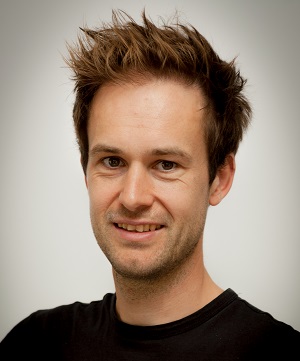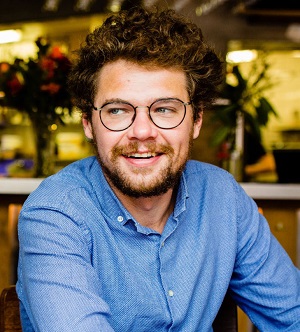Coordinator User experience lab
Odisee University of Applied sciences, Belgium
Researcher User experience lab
Odisee University of Applied sciences, Belgium
Evaluating and testing your digital application with end-users is a key factor in a user centered design approach. The classic user test happens with a moderator. The moderator observes the user and gives commands, asks questions and responds to the test person's body language. This kind of test provides a wealth of information that you cannot derive from analytics, mouse movements or what the user says spontaneously during a screen recording.
The moderator’s skills are crucial for the output of the user test. A wrong question or attitude can make your research worthless. Also observing the user in detail is difficult, you cannot notice each frown or smile on the users face.
In this tutorial you will first learn how to facilitate a user test. Through several real cases you will see the good practices in user testing.
As second, you will be introduced in the use of different sensors to support your user tests. Eye-tracking is already a well-known technique to support this kind of tests. But less used and known are facial expression analysis, galvanic skin response, heart rate variability and even measuring brain activity (EEG). These techniques are nowadays cheaper and more accessible for researchers to measure the user’s behavior and to support user tests.
In this tutorial, we explain the advantages of the techniques mentioned above and in what circumstances they are useful to support user testing of digital applications. We inspire you with several cases from our User experience lab.
You will gain understanding, knowledge and skills of advanced user testing. You will gain knowledge about biometric sensors and you will know why and when it will be an advantage to use them. You will see real cases that will inspire and that will show the advantages of user testing.
Tutorial programme:
Professional executives, designers, developers and anyone who want to learn about user testing, this includes:
During the tutorial the presenters will use Figma & iMotions
During the tutorial we will ask the participants to collaborate in shared documents like Google drive but no account is necessary

DAVY DE WINNE
Davy is the coordinator of the User experience lab of the Odisee University of applied sciences. He is lecturer & researcher in the field of User Experience design especially for Web & Mobile applications. Beside teaching he is involved in different research projects. These projects are mostly a collaboration of an interdisciplinary team with a close connection to the industry & the users. In these projects Davy is the glue between stakeholders, users, researchers & developers. He is translating the scientific outcomes into usable digital solutions that fulfil the needs of end-users. The complete user centered design process is his cookbook in each project with special attention to user interviews and moderated user testing.

RUTGER DE WILDE
Rutger started his professional career in 2010 as the first permanent employee of a small IT company called IZIT. He started developing Mira software, an equipment management tool. As the company grew Rutger became the lead developer for the software until he said goodbye in 2019 to start his own business creating and designing websites, and creating web applications. He joined Odisee in the spring of 2021 as researcher for the UX department and teacher in the ICT field of study.